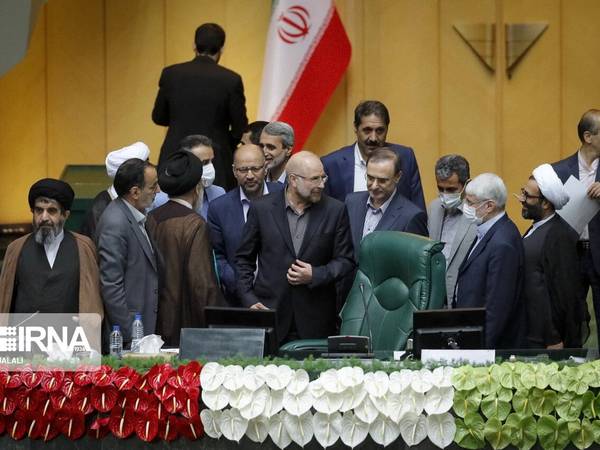Iran's Masoud Pezeshkian has two weeks to present his cabinet to a parliament dominated by hardliners and ultra-hardliners who supported his rivals in the recent presidential election.
At Pezeshkian’s endorsement ceremony Sunday, Supreme Leader Ali Khamenei said the selection of the cabinet is the “joint work of the administration and the parliament” and stressed that the cabinet should be formed as soon as possible.
Khamenei’s emphasis on the need to speed up the formation of the new government means two things, the ultra-hardliner lawmaker Ahmad Rastineh said Sunday: Pezeshkian should present his proposed cabinet to the parliament quickly, and while “cooperating” with the new president, the Parliament should approve those ministerial appointments that confirm with Khamenei's criteria, as quickly as possible.
Referring to reformists’ possible influence in Pezeshkian’s cabinet, Rastineh declared that the President should not consider himself aligned with a “certain political current”.
The so-called ‘Principlist’ majority of the 12th Parliament is divided into two major factions, hardliners who support the Speaker Mohammad-Bagher Ghalibaf and ultra-hardliners who fielded Saeed Jalili in the elections.
The two groups have diverged in the past few years and the umbrella term ‘Principlist’ which once defined all conservatives as opposed to ‘reformists’ no longer defines a united front.
The conflict between Ghalibaf and Jalili's supporters on social media during the parliamentary elections earlier this year significantly escalated when Jalili refused to allow Ghalibaf, who had a better chance against Pezeshkian, to represent the 'revolutionary front' in the presidential runoff elections in July.
Pezeshkian may manage to get some support from Ghalibaf’s faction which considers Jalili a much bigger threat than the reform-oriented Pezeshkian. After Ghalibaf lost in the first round of the presidential vote, many of his supporters openly supported Pezeshkian in the runoff election to prevent Jalili's victory.
It remains to be seen how likely Ghalibaf is to cooperate with Pezeshkian and steer his faction to protect him and his cabinet from Jalili’s ‘revolutionaries’.
“Mr. Ghalibaf ought to do everything in his power as the head of the legislature to prevent the radicals in the parliament from blocking the government’s path with their insistence on radical behaviors,” Gholam-Ali Jafarzadeh-Imanabadi, a former ‘Principlist’ lawmaker, said Sunday.
Jafarzadeh-Imanabadi argued that it is time for Ghalibaf to repay the favor to the parliament’s independent faction, of which Pezeshkian was a leading figure. Without their support, Ghalibaf would not have been re-elected as speaker of the 12th Parliament in March.
There are also two smaller groups of ‘Principlists’ in the parliament consisting of moderate conservatives and conservatives. These groups consist of the supporters of former President Hassan Rouhani, former Speaker Ali Larijani, the Islamic Coalition Party, and the Association of Combatant Clerics led by presidential candidate Mostafa Pourmohammadi.
These two groups have been eliminated from centers of power by hardliners and ultra-hardliners in the past few years and many among them cast their votes for Pezeshkian in the runoff elections. Ghalibaf can also get their support in helping Pezeshkian cabinet.
‘Principlist’ lawmakers make up more than two-thirds of the Parliament’s 290 lawmakers.
There are less than 100 ‘reformists’ and independents, mainly from smaller constituencies, whom Pezeshkian can also count on to support his proposed ministers.
Of Ebrahim Raisi’s nineteen ministers, only one was rejected by a sympathetic parliament in 2021. In contrast, hardliner and conservative lawmakers refused to endorse several of the ministers proposed by Hassan Rouhani during his two presidential terms in 2013 and 2017. However, reformist Mohammad Khatami managed to secure a vote of confidence for all his ministers from a conservative-majority parliament during his first term in 1997.
